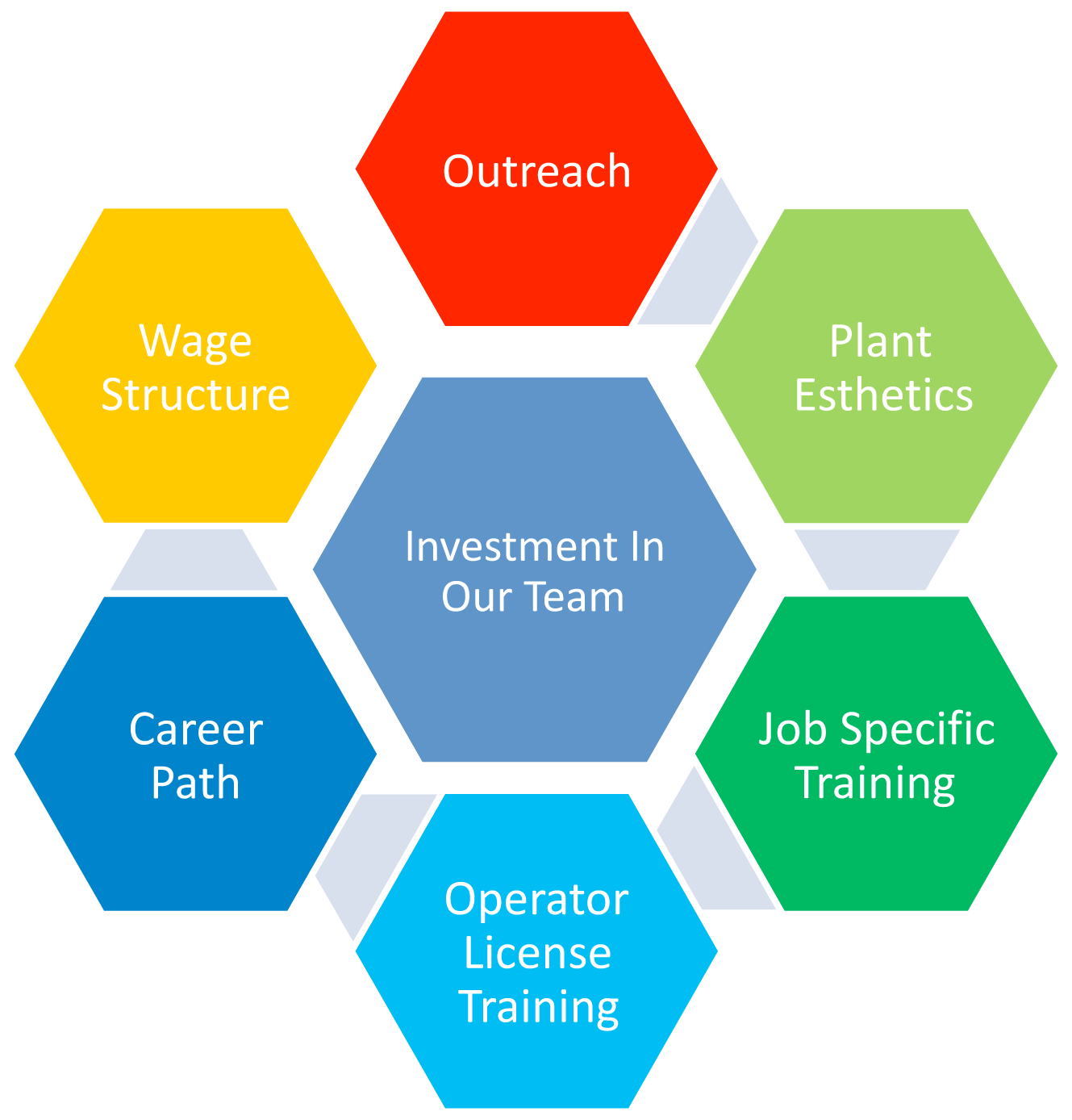People
Professional Trade Groups
Operating multiple utility plants to serve three campuses at UNL requires a diverse mix of team members, each performing critical functions to the overall operation.
Water Analyst
Maintaining appropriate water chemistry is critical to our steam / chilled water system, and the Water Analyst manages all phases of water chemistries, performing all testing and calibration of analyzing equipment. This position also works with contracted chemical manufacturers and vendors providing chemicals and services to the utility plant, and with University Environmental Health and Safety (EHS) to make sure the utility plant is in compliance with all university standards and regulations.
Electrical
The electrical staff is responsible for maintaining electrical equipment and systems within the utility plants as well as the electrical distribution systems. They work with engineers and electrical contractors in design, installation, construction, and modifications of electrical systems while adhering to local, state, and national electrical codes.
Instrumentation and Controls
Instrumentation and Controls staff are responsible for proper operation of plant control systems 24 hours a day, 365 days a year. They troubleshoot, repair and calibrate utility plant control systems including those used for the automatic control of high-pressure boilers, centrifugal chillers and all associated equipment. They also maintain the utility metering system and record meter data history.
Mechanical and Maintenance
The maintenance staff is composed of pipefitters and utility maintenance technicians. They are responsible for maintaining the integrity of all mechanical systems within the utility plants as well as miles of distribution piping serving the campus' with steam and chilled water. They work closely with other plant trades as well as contractors to maintain operational reliability.
Plant Operators
Operators are responsible for overseeing the operation of high pressure boilers, turbines, chillers, and related distribution systems and equipment in a safe, reliable, economical manner in the central power plants and two remote plants. UNL utility plants maintain a 24/7 operation and require 4 shifts of operators to maintain effective coverage. These leaders also supervise, train, and evaluate plant staff and maintains required operation records and equipment readings.
Investing in Our Team
We value our team members and create opportunities to enhance the on-the-job experience and environment, such as:
OUTREACH
We are proud of our team and our expertise. We create opportunities for our staff to engage with visitors during tours and information sessions.
PLANT AESTHETICS
We believe a team that is proud of its workspace is more effective so we provide funding and direction to support visual and aesthetic improvements in the Plants.
JOB-SPECIFIC TRAINING
We regularly provide job-specific training to prepare staff for diverse working conditions. Safety training is provided by the UNL Environmental Health and Safety department.
- Asbestos Awareness
- Chemical and General Safety
- Chemical Safety Training
- NIULPE Power Engineer
- Mechanical Pumps and Seals
- Vibration Analysis
- HEP Chilled Water System
- HEP Steam Cycle
- Chief Power Engineer Certificate
- 1st Class Power Engineer Certificate
- Refrigeration Handling Certificate
- City of Lincoln Tradesman License
- Forklift Operator License
- Class A Masters/Contractors Electrical License

SAFETY TRAINING
We regularly provide safety training opportunities for each team member for the following:
- Steam System
- CPR, AED, First Aid
- Chemical Safety
- Asbestos Awareness
- Lockout Tagout
WAGE STRUCTURE
We offer a competitive wage structure, which leads to qualified individuals working as a team.
CAREER PATH
We provide each team member with a documented career path advancing compensation levels.
PLANT AESTHETICS
We believe a team that is proud of its workspace is more effective so we provide funding and direction to support visual and aesthetic improvements in the Plants.




